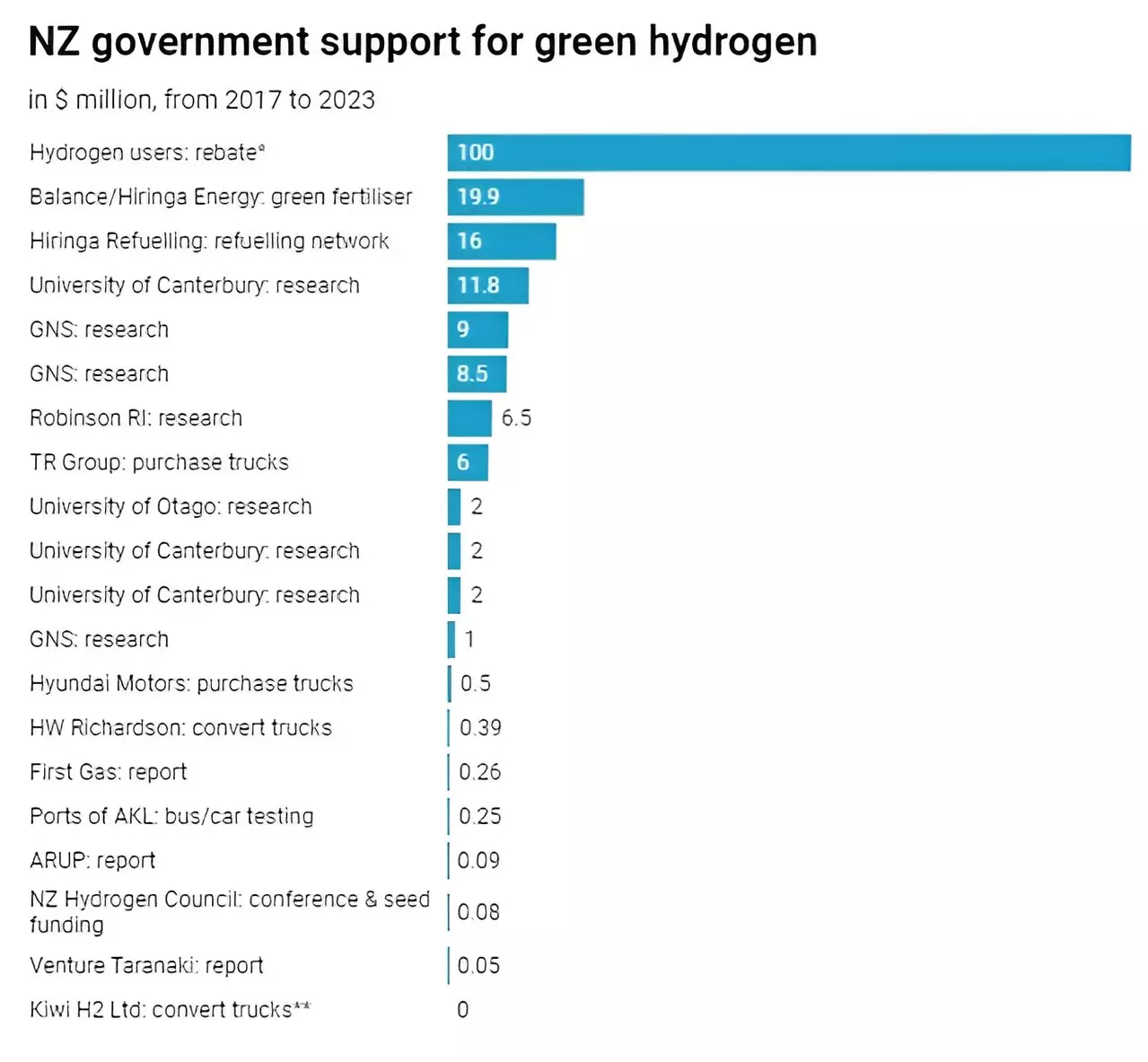The recent failure of the deal to supply hydrogen-powered trucks to New Zealand, coupled with the removal of a NZ$100 million government rebate scheme for green hydrogen users in the 2024 budget, has cast doubts over the country’s transition to this highly-touted energy technology. Despite the government’s initial investment of $6.5 million for the acquisition of heavy freight hydrogen trucks, the abrupt withdrawal of US company Hyzon, a major player in hydrogen fuel-cell trucks, has left a significant void in the planned transition. The uncertainties surrounding the future of green hydrogen in New Zealand are now more pronounced than ever.
Interest in green hydrogen for future transportation and energy systems has been skyrocketing on a global scale, and New Zealand is no exception to this trend. The government’s substantial financial support for green hydrogen, totaling $186.3 million from 2017 to 2023, underscores the country’s commitment to exploring this promising energy alternative. Proponents of green hydrogen argue that its production using electricity from renewable sources is crucial for decarbonizing sectors that are particularly challenging to electrify directly. These sectors include heavy road transport, shipping, and fertilizer production, among others.
Despite the overwhelming enthusiasm for green hydrogen in New Zealand, critical voices have been conspicuously absent from the conversation. A comprehensive content analysis of government reports and media coverage reveals a prevailing optimism and a lack of critical scrutiny regarding the potential drawbacks and challenges associated with green hydrogen adoption. While the positive narrative surrounding green hydrogen has been dominant, few voices have questioned its efficiency, effectiveness, and cost-effectiveness compared to existing alternatives.
The need for a more nuanced perspective on green hydrogen is imperative as New Zealand grapples with its energy transition strategy. It is essential to recognize that hydrogen is merely an energy carrier that must be produced from other energy sources, rather than a standalone energy resource like solar or wind. A critical reevaluation of the sectors prioritized for green hydrogen adoption is necessary to ensure that limited resources are directed towards applications with the highest potential for decarbonization and sustainability. This may involve a shift towards industries transitioning from fossil fuels to green hydrogen to produce essential commodities such as steel, ammonia, and methanol.
Government policy on green hydrogen must be guided by independent advice devoid of commercial interests to make well-informed decisions about the country’s energy future. Critiques of green hydrogen’s viability and the comparative advantages of alternative technologies, such as battery electric vehicles, must be incorporated into policy discussions to ensure a balanced and evidence-based approach. By fostering a new green hydrogen narrative that prioritizes sustainability and decarbonization goals, New Zealand can channel its resources towards applications that offer the most promising pathways to achieving a cleaner and greener energy landscape.
The challenges and opportunities associated with green hydrogen adoption in New Zealand necessitate a critical reevaluation of existing narratives and priorities. By acknowledging the limitations and complexities of hydrogen as an energy carrier and integrating independent advice into policy decisions, the country can navigate the energy transition landscape with greater clarity and foresight. It is imperative to strike a delicate balance between enthusiasm for new technologies and a pragmatic assessment of their real-world implications to steer New Zealand towards a more sustainable and resilient energy future.


Leave a Reply